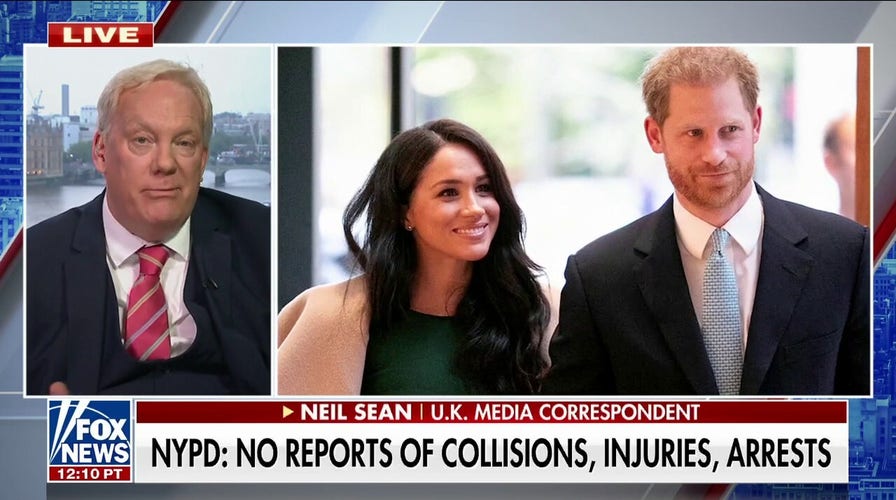The ongoing legal struggle of Prince Harry regarding his visa and immigration status in the United States has captured public interest, showcasing the intriguing intersection of celebrity, law, and societal expectations.
Recently, during a crucial immigration hearing, a U.S. judge made a notable decision: Prince Harry would not be addressed as “prince.”
While this might seem like a minor formality, it carries significant implications for someone who has always enjoyed royal privileges.
This ruling starkly highlights the differences between American egalitarian principles and the hierarchical nature of British nobility.
For Harry, who has lived much of his life under the weight of royal expectations, being stripped of such formalities underscores a new reality—one where he is treated like any other individual navigating the complexities of immigration law.
At the heart of this scrutiny is The Heritage Foundation, a conservative think tank that has taken a keen interest in Harry’s visa situation.
Their investigation was sparked by revelations in his memoir, “Spare,” where he candidly discussed his past drug use, including substances like cocaine and marijuana.
While Harry’s intention was to share his vulnerabilities and humanize himself, this openness has led to questions about whether U.S. immigration authorities were aware of these admissions during the visa approval process.
Under U.S. immigration laws, prior drug use can be grounds for denial of entry, raising a pressing question: Did Prince Harry receive special treatment because of his royal status?
This inquiry touches on broader themes of privilege and fairness within the immigration system, igniting debate among the public and legal experts alike.
Responses from the public have been mixed.
Some argue that a thorough examination of Harry’s immigration history is essential to uphold the integrity of U.S. immigration laws.
Others believe that, like many individuals seeking a second chance, he should not face repercussions for past mistakes that he has openly acknowledged and moved beyond.
This division reveals a deeper societal tension surrounding accountability for public figures versus the allowances they may receive due to their status.
The case raises fundamental questions about the treatment of royals in the U.S. legal system.
Should someone with global recognition be subjected to the same scrutiny as any other visa applicant?
The implications of this situation could set important precedents, influencing how similar cases are handled in the future and shaping public perceptions of fame, legality, and personal responsibility.
As discussions continue, the media and public discourse have amplified these issues, sparking debates about whether Harry’s entry into the U.S. exemplifies a privilege that undermines the immigration process for everyday applicants.
Legal analysts and commentators are weighing in, arguing about the balance between transparency and privacy in cases involving high-profile individuals.
Adding another layer to this narrative is Harry’s personal journey.
He has long grappled with reconciling his royal identity with the struggle for personal purpose and normalcy.
His decision to disclose his past drug use was part of a broader conversation about mental health and resilience, resonating with many who have faced their own challenges under intense public scrutiny.
While Harry’s memoir aimed to destigmatize conversations around mental health, critics point out that not everyone who shares their story can expect the same understanding, especially in contexts like immigration, where past actions can have serious consequences.
This discrepancy raises questions about fairness and equity in the treatment of individuals based on their public personas.
Public sentiment surrounding Harry’s situation varies widely.
Some view it as a test of fairness, questioning whether a less famous individual with fewer resources would encounter similar leniency for past admissions.
This scenario prompts broader discussions about identity and the adaptability of royals like Harry when they no longer enjoy the protective shield of their titles.
In this evolving landscape, Harry’s legal battle transcends mere courtroom drama; it embodies a deeper exploration of identity, accountability, and resilience.
As he navigates the complexities of being a private citizen under public scrutiny, the prince’s journey from royal expectations to facing legal realities evokes both sympathy and critique.
Moreover, this situation invites reflections on how society views redemption and accountability for public figures.
Is Harry’s candidness about his past an appeal for empathy, or is it a lesson on the costs associated with transparency?
Balancing his public role with personal struggles illustrates a broader theme of how individuals manage judgment and adapt to changing social norms.
The ongoing discourse surrounding Prince Harry’s U.S. visa underscores universal challenges of fairness and the quest for justice in a world where identity can confer both advantages and disadvantages.
His experience raises critical questions about whether status should provide protection or expose individuals when their pasts come under scrutiny.
As discussions evolve, Harry’s saga may reshape our understanding of fame, privilege, and the impartiality of the justice system.










